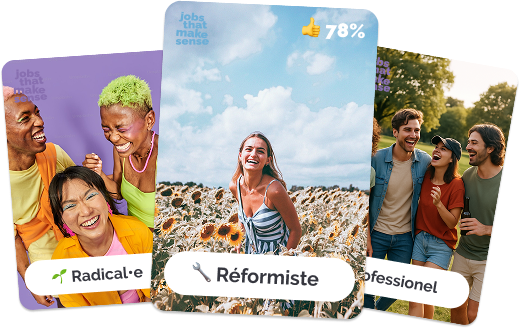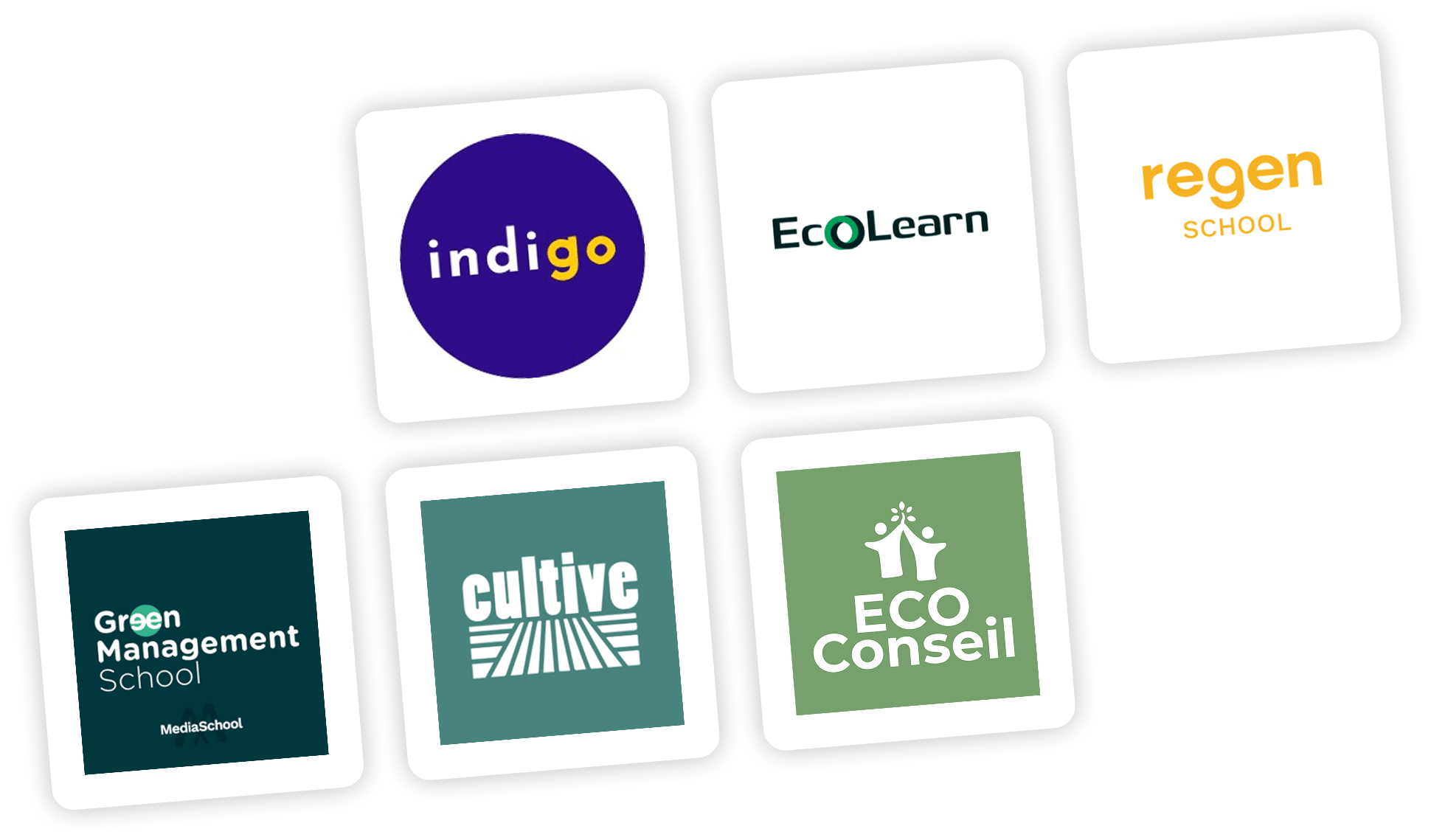Successful professional retraining - Philippe Drouillon
Philippe gave a new impetus to his career at 44 years old. Changing jobs was an opportunity for him to do 100% of an activity he had already started practicing with his previous employer.
Can you give us a little recap of your journey?
When I was 18, I studied chemical engineering and a degree in biotechnology. At that age, for me, it was thanks to science that we were going to save the world. Then I found a job in a big Belgian multinational actress in the field of chemistry. After 20 years, I had the impression of arriving at a dead end to develop what I liked: positive or impact models. I was engaged extra-professionally with the feeling of going elsewhere to compensate for what I could not find in my professional life. I wanted to change and especially to launch my activity, without having the courage to give myself the kick I needed to go there. And one night I texted my boss saying “we need to see each other.” The next day I told him that I wanted to leave.
“with my professional life I didn't have time, so I had to cut the cord with my employer.”
Were you able to test your professional project before you started?
For 3 to 4 years, I worked it out on paper and annoyed my friends a lot by talking to them about it. They were like “either take the plunge or stop telling us about it.” I had self-employed status to test myself before I started, but with my professional life, I didn't have the time, so I had to cut the cord with my employer.
What does your business consist of?
I have developed a service offer to support positive impact companies, SSEs or medium and large companies that have a real intention of shifting their business model towards more positive impact. I suggest that my clients adopt one of the following postures to support them: project manager, advisor, coach or facilitator.
Did you start from scratch in your new professional project?
I started from zero in relation to the clients and beneficiaries of my services, but in the context of my previous job, I had already acquired a solid background. At the beginning, I supplemented my skills by committing myself as a part-time entrepreneur for an SSE company.
What skills were you able to use that you had mobilized in your previous job?
Skills in strategy, coaching. I was able to take a coaching course, paid for by my employer, to develop these skills. I tested them by coaching teams of managers and workers at this employer.
How did you find your first clients to practice your activity professionally?
Comme j’en avais parlé à des amis, par le bouche à oreille, j’ai pu me tester sur des premières missions.
Talk about a big leap, did you really experience it like that? How did you feel?
Yes. It was the first time that I really went into the unknown. I held a lot of positions with my employer and it was just a new environment, new benchmarks, but food-wise, there wasn't really any risk. As a freelancer, the question arises whether it will allow you to live at the end of the month. It's a big leap, but I said to myself: "I'm giving myself 6 months to see if it will work" and it did.
You changed jobs at 44, how did you experience this retraining?
I was called crazy. 😂
What did you not expect in your reorientation?
Regaining my freedom and my autonomy was something that I hoped to have by deciding to change my life to be independent. On the other hand, I did not expect to be so passionate about what I do. I manage to live from an activity that I did not think could be a professional activity. I spend my day doing stuff that I could only imagine doing in the evening after work. As a freelancer, you can also arrange free time at any time when you want, and suddenly I did not expect to feel the need for the weekend less.
What lessons have you learned after 12 years as a freelancer?
You have to coach yourself to be able to manage the less comfortable moments when you receive less salary. Do not stress too much, try things, and give yourself time to accommodate things: daring to leave "empty slots" in a schedule allows you to be mentally and physically available to welcome new opportunities, happy coincidences, which can lead to new missions, thus enabling them to reinvent themselves regularly. If these free moments don't exist, my head is in the air and the only thing I can do is: more of the same, with the risk of missing out on opportunities for reinvention.
When can you let go?
You don't let go. The concern remains as an independent freelancer. It is less strong than before, because I try to moderate it by remembering what happened when I got scared. Often everything went well. I try to remember how long it lasted and I tell myself that I can worry when this time has passed. You just have to manage this moment of discomfort. It would be a lie to say that I let go completely. I've been in this business for 12 years. Will what I offer one day be less relevant? If so, if I took the leap once, I will do it again if I have to change direction in my activity.
For further
👉16 steps for your professional transition
👉 There is no age to start: make a professional retraining at 35, 40, 50
👉 Tools for a better self-understanding : Ikigai, MBTI test
Take action
👉 Training in the professions of ecological and social transition



